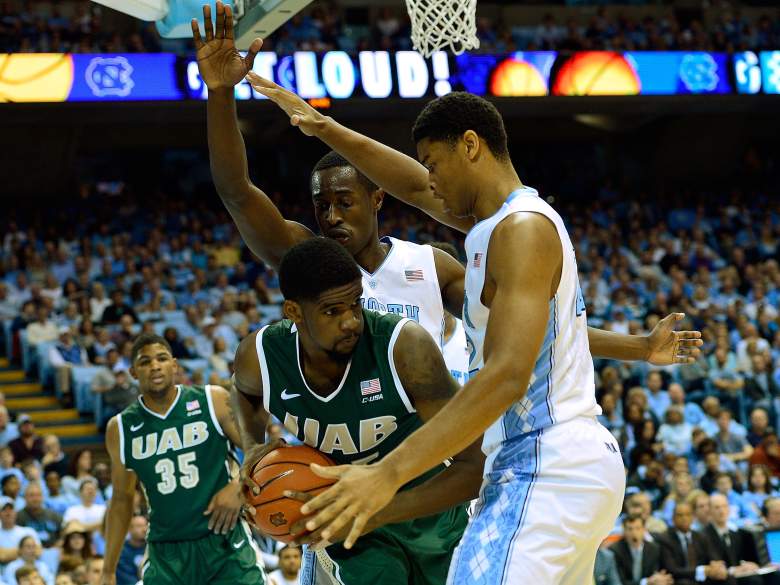
(Getty)
The NCAA sent a Notice of Allegations to the University of North Carolina on Friday morning. The school is prepared to release a statement addressing the news later in the day, according to Inside Carolina.
This isn’t the first time a major university has had problems with the NCAA on an academic level. In recent years, the prevalence of legitimate academic concerns has appeared multiple times with popular, nation-wide universities.
Here is what you need to know about the allegations and subsequent investigation of North Carolina:
1. The NCAA’s Investigation Has Taken Place Over the Course of 18 Years

Julius Peppers attended North Carolina until 2002
The investigation into the potential academic fraud for University of North Carolina’s student athletes began in the late 1990s. In the last five years, CNN has published multiple reports that have slowly exposed the situation at the school. The NCAA reopened its 2011 investigation.
In January 2014, CNN published an article that some North Carolina student-athletes struggled to meet a reading level beyond elementary school standards. The investigation gained traction when NFL defensive end Julius Peppers (who attended North Carolina until 2002 before declaring for the NFL Draft) had his transcript released in 2012 (when Peppers was a member of the Chicago Bears).
Multiple characteristics of the transcript aligned with transcripts of other athletes around the same time period, namely the inclusion of classes without concrete department backing.
2. The University Responded to the Allegations in 2014
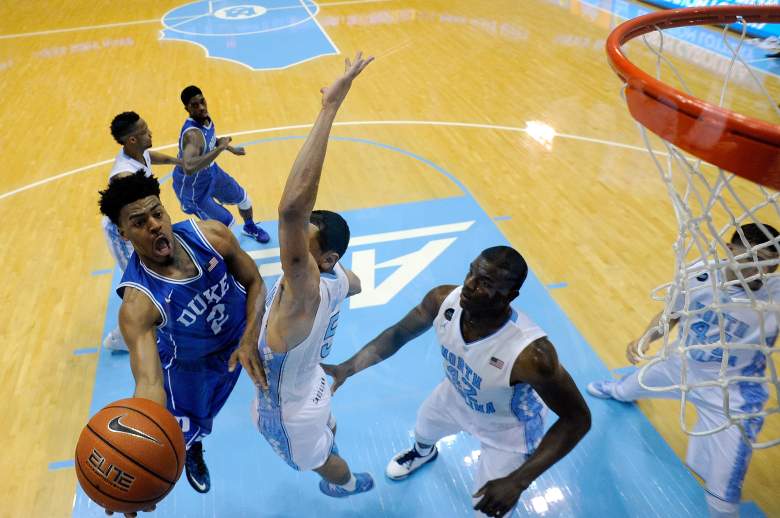
(Getty)
Although the University knew for years it was under scrutiny and faced the possible threat of an NCAA investigation looming, the school decided to take noticeable action in 2014, in direct response to a 2012 report that brought the allegations to light.
The University brought in former U.S. attorney Kenneth L. Wainstein, a 19-year veteran of the U.S. Justice Department, to conduct an independent investigation of academic irregularities at the Chapel Hill campus.
Among the names that failed to cooperate with the investigation include:
– Octavus Barnes, academic counselor for football 2002-2009.
– Carolyn Cannon, associate dean and director of academic advising. 1999-2010, who was the principle adviser for the men’s basketball team.
– Cynthia Reynolds, director of football, 2002-2010. She was called a “critical witness.”
– Everett Withers, interim head football coach in 2011. He’s now at James Madison University.
3. The Allegations Accuse UNC of Filtering Athletes into ‘Paper Classes’
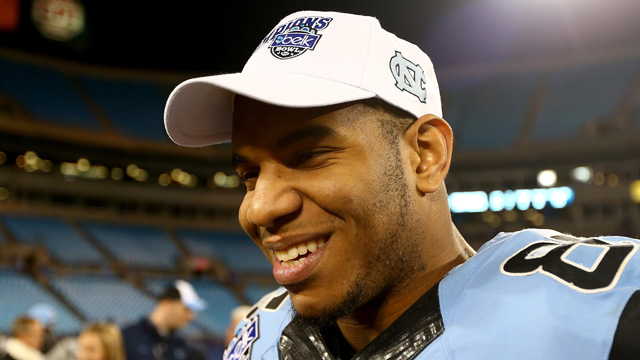
Eric Ebron was a tight end at North Carolina until he entered the NFL Draft in 2014. (Getty)
These “paper classes” were “made up” classes that academic advisers created specifically for athletes. In Weinstein’s 131-page report, he detailed that these classes were created solely for the benefit of student-athletes:
These counselors saw the paper classes and the artificially high grades they yielded as key to helping some student-athletes remain eligible
The recorded grades for these classes have also been called into question, too. It is no secret that NCAA student athletes work on a different schedule than most other students and, on that note, take classes at different times — sometimes online. In order for student-athletes to continue playing, they must remain academically eligible first. These artificial classes and fabricated grades were designed to keep the Tar Heel athletes playing.
The two University employees under most scrutiny were African American Studies Department Chair Julius Nyang’oro and Debbie Crowder who invented these classes specifically for the student-athletes to take.
4. North Carolina Athletic Accomplishments Could Be in Jeopardy
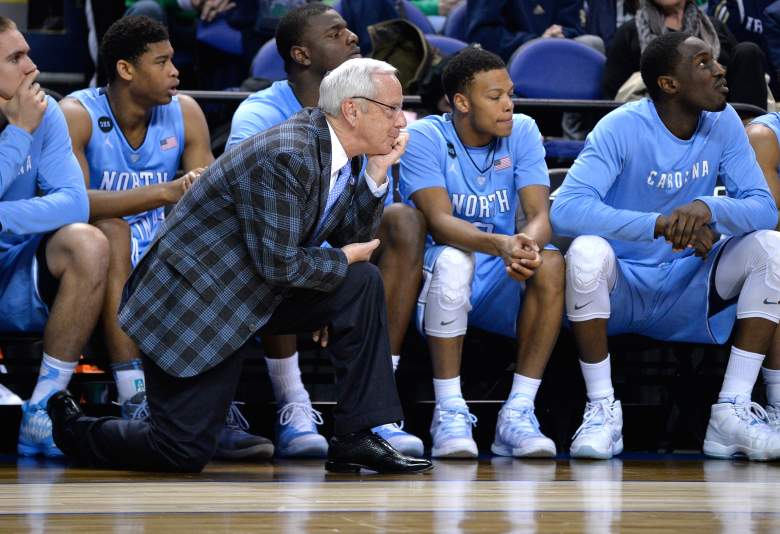
(Getty)
Specifically, football and basketball accomplishments are in jeopardy. The Tar Heels won the National Championship in 1993, 2005 and 2009, and those three championships and wins during the last two decades are at risk of being taken away.
Former Tar Heel guard Rashad McCants admitted that although the University declared that he had made the Dean’s List during his time with the school in 2005, he had no knowledge of the situation, nor did he admit to being a student on the Dean’s List. He also admitted that the bogus class kept him eligible to play on the team that won the 2005 National Championship.
The incident also implicates other revenue-generating sports. From 2003-05, there was an increase in the amount of Olympic student-athletes enrolled at the school.
5. Other High-Profile Schools Have Had Sanctions Put Into Place by the NCAA
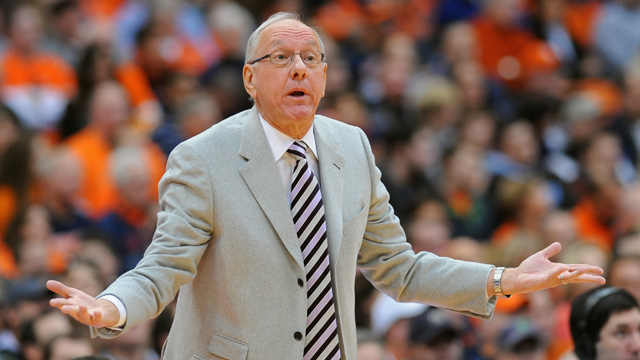
(Getty)
Earlier this year, the Syracuse University faced sanctions by the NCAA for an academic-fraud investigation that, like North Carolina, dated all the way back to the early 90s. A 94-page report revealed that there were issues of ineligible students receiving additional academic support. The entire athletic program was placed on two-years probation after findings in other areas of the athletic department.
Despite Syracuse facing penalties for the NCAA, they pale in comparison to the 2011 investigation of the University of Miami, which faced some of the most severe penalties that any school has received in regards to fraud by the NCAA.

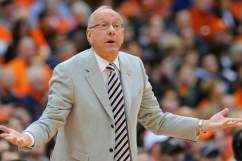
Comments
North Carolina Academic Fraud Allegations: 5 Fast Facts You Need to Know